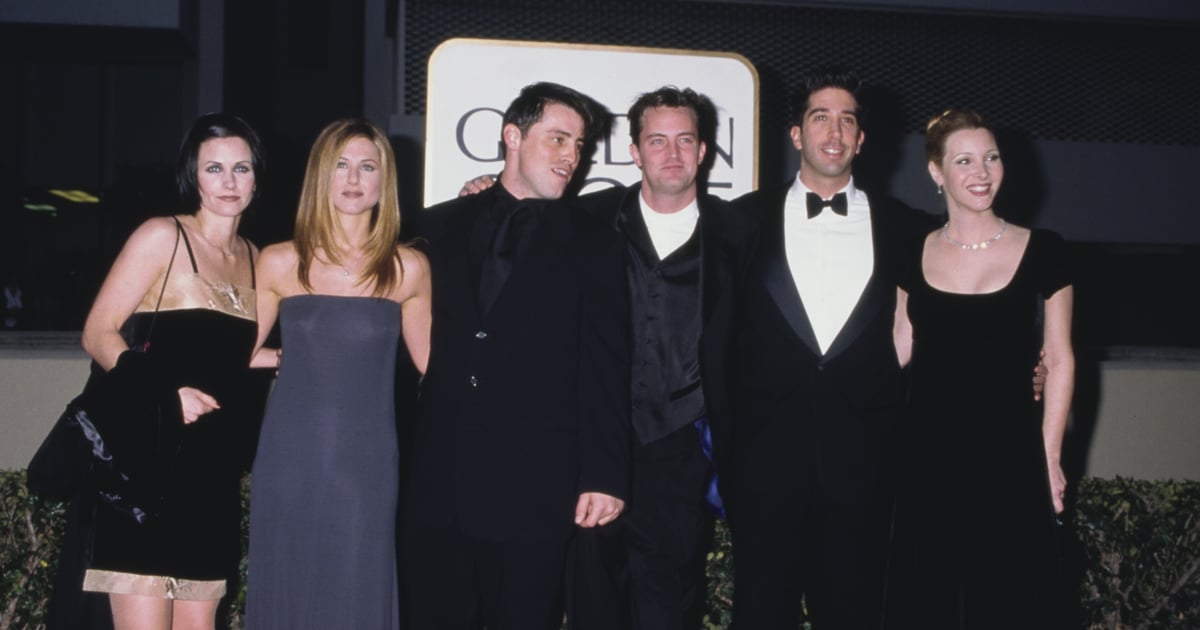Collective grief is something most of us are familiar with, whether we acknowledge it or not. It’s the result of living through the pandemic or experiencing natural disasters, deaths of iconic figures, or any unexpected loss shared with a community. Public mourning is a natural way to seek validation, feel witnessed, and receive acknowledgement.
Take actor Matthew Perry’s death, for example. The “Friends” star was beloved not only for his role on the show, but his vulnerability off screen regarding his battle with addiction and recovery. Since Perry’s passing, there has been an outpour of commemorative posts from costars and fans alike who felt deeply connected to the actor.
Other times, collective grief can involve a more complex processing of emotions — take the reactions to the passing of Queen Elizabeth, for example. Collective grief holds overlapping experiences, but mourning as a community may be beneficial. Ahead, POPSUGAR spoke with grief experts about better understanding collective grief, whether or not it can help with the healing process, and how to hold space for others.
What Is Collective Grief?
Collective grief happens when a group of people experience a shared loss or sudden change, according to the Grief Recovery Center. Megan Devine, LPC, podcast host and author of “It’s OK That You’re Not OK,” likes to describe it as when your emotional Venn diagram overlaps with a lot of other people’s emotional Venn diagrams. “You can have collective grief when one of your community dies or is changed by an illness or an injury,” Devine says. “Or on a larger scale, the pandemic gave all of us a loss of routine and certainty, in addition to the many who lost loved ones, jobs, homes, and sense of stability.” Grieving with a community can give a sense of validation that helps with the healing process.
Does Public Mourning Help Us Heal?
It can. Death, whether personal or public, can be a shock. “It’s something we hear from a lot of our listeners about — this feeling of not quite being able to believe that the person has gone,” say Sally Douglas and Imogen Carn, cohosts of the “Good Mourning” grief podcast. That feeling can come up even when you don’t personally know the person who has passed.
As humans, we crave community and connection, Devine says, and that may be especially true during periods of change or upheaval. “Companionship is survival,” Devine says. “It’s important to feel like you’re not the only one in the world feeling this way, because that’s how we get isolation, loneliness, and depression, among other things.” So when we see others engaging in expressions of communal grief — whether it’s grief over the loss of someone we considered admirable or a renewed sense of grief over generational harms you may still be affected by — it can be soothing. “Feeling like we’re sharing an experience — joy or mourning — is a really powerful thing,” she adds. “We need to be seen by each other, and we need to see each other.”
How Do You Hold Space For Someone Whose Grief Looks Different Than Yours?
We all respond and cope differently to loss, and there’s no “one size fits all” when it comes to the way we grieve. Every relationship is unique, so every expression of grief is unique — including collective grief. Ultimately, whether it’s on a personal scale or a collective scale, when emotions are running hot, it’s much easier to engage in a social media war than it is to come to it with curiosity. If you’re having big feelings, it may be “time to step away from social media until you have something articulate to say about it,” Devine says. Because realistically, public grieving doesn’t have to mean sharing everything you feel in front of everyone. It can be just within your smaller community, Devine says: “You get to choose how much of yourself you bring to the public square.”
— Additional reporting by Alexis Jones

